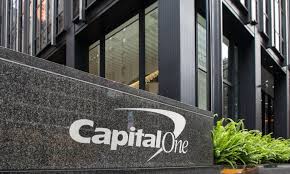FinCEN Settles with Capital One for $390 Million for AML Violations

In a harbinger of future enforcement actions surrounding AML compliance program violations, the Treasury Department’s The Financial Crimes Enforcement Network announced a $390 million settlement with Capital One for weaknesses in its AML program.
Capital One was credited $100 million for its 2018 payment to the Office of the Comptroller for AML violations involving its check cashing business unit. The FinCEN enforcement settlement involved conduct from 2008 to 2014 for Capital One’s check cashing business, which it terminated in 2014.
Capital One acknowledged that from 2008 to 2014 that it failed to maintain an effective AML program and to file thousands of suspicious activity reports (SARs) and currency transaction reports (CTRs). FinCEN concluded that these violations were “willful and negligent.”
The factual statement outlines a blatant disregard for laundering of Capital One check cashing business transactions involving organized crime, tax evasion, fraud and other financial crimes. FinCEN labeled these violations as “egregious.”
In 2008, Capital One entered the high-risk check cashing business in New York and New Jersey with approximately between 180 and 300 storefront locations. Capital One entered the markets through the acquisition of North Fork Bank, which began to operate under the Capital One name in 2008. Prior to the acquisition, banking regulators alerted Capital One to weaknesses and deficiencies in North Fork Bank’s AML program and to the risky nature of the check cashing business.

Capital One was fully aware of the high-risk nature of this business given its internal risk assessment process which ranked several of the check cashing clients in the top 100 of the bank’s highest risk customers. Despite this preliminary assessment and ongoing awareness of its high-risk client base, Capital One maintained only a weak suspicious activity review process, which ultimately lead to widespread failures to file SARs as mandated under the Bank Secrecy Act. Even when it was aware of customers had pending criminal charges against them, Capital One failed to file SARs for questionable check cashing activities, including a member of the Genovese organized crime family who ultimately plead guilty to money laundering in 2019.
Initially, Capital One hired BSA officers to build out an enterprise-wide AML program, including policies, procedures, and process controls. FinCEN noted that these controls and procedures were inadequate and plagued by a number of technical failures that were not promptly addressed. In particular, FinCEN noted that the BSA officers accepted dubious explanations from the business personnel, which ultimately resulted in a failure to guard against money laundering and other criminal and suspicious activity.
Customer Due Diligence
FinCEN described how Capital One included check cashing customers in its enterprise-wide automated AML monitoring system, which rated customers based on their overall risk for money laundering. Capital One used a risk scoring system that, in 2010 identified 6000 check cashing customers as high-risk for money laundering.

Capital One used the customer risk scores for several purposes, including semi-annual customer reviews, such reviews inadequately addressed check cashing risks and transaction patterns. In particular, FinCEN cited Capital One’s improper use of a macro that aggregated debits and credits for the cash checking customer under review. FinCEN outlined the specific deficiencies in this comparison, which failed to detect red flags or follow up appropriately on potential indications of suspicious activity. In other words, Capital One’s macro analysis was incorrectly used as the primary benchmark for reasonableness, overlooking the nature or apparent lawful purpose of their customer’s underlying activity and the patterns therein.
FinCEN also cited Capital One’s deficient implementation of a large item report (LIR) for checks greater than $9000. As a result, the LIR system failed to list large checks cashed by several high-risk customers for several years. Although this problem was identified in 2012, the LIR system was not corrected until ten months later.
FinCEN also described weaknesses in Capital One’s investigation process for suspicious transactions. From January 2009 to December 2013, AML analysts identified suspicious activity (e.g. “medical fraud ring,” “excessive corporate check cashing”) in at least 30 check cashing customer accounts. To follow up, AML analysts were instructed to contact the Capital One relationship manager to obtain information and guidance. The business line relationship manager often supplied vague and implausible explanations for check cashing activity, which were often accepted by the AML analyst.
Failures to File SARs and CTRs
As a result of its AML program failures, Capital One failed to file thousands of SARs. In fact, Capital One filed no SARs on its check cashing customer activity until October 2009. Capital One alsoadmitted to failing to file approximately 50,000 CTRs tied to more than $16 billion in cash handled by its check-cashing customers.
Even after, Capital One failed to file SARs even when it had direct knowledge of certain check cashing customers’ indictments and guilty pleas for criminal activity associated with their check cashing operations flowing through Capital One’s accounts.
Domenick Pucillo

FinCEN outlined numerous instances of SARs violations relating to Domenick Pucillo, one of the largest check cashers in the New York-New Jersey areas, and a member of the Genovese organized crime family. Pucillo plead guilty in May 2019 to money laundering conspiracy relating to loan sharking and illegal gambling activities that involved Capital One accounts.
In two other significant instances, FinCEN noted that Capital One failed to file SARs against two other criminal actors – The Goldberg Group and Dependable Check Cashing.
Goldberg Group
In July 2009, Capital one learned that Charles Goldberg, and his check cashing companies, had been charged in a 186-count indictment for falsifying business records, concealing structured transactions and failure to file CTRs. Later that same month, Charles Goldberg met with Capital One managers, admitted his involvement in the alleged criminal activity and told the managers he intended to plead guilty. Capital One initiated a review of the Goldberg activity, without filing a SAR with the justification of “activity appears reasonable for a check casher.” Capital One did not file a SAR for any the Goldberg activity until March 2017, eight years after the conduct.
Dependable Check Cashing
Dependable was a Brooklyn, New York check cashing company. In August 2012, Capital one managers learned that a manager at Dependable had been indicted in federal court with two other individuals, alleging that from 2008 to 2012 the individual used Dependable’s business as part of a conspiracy to commit money laundering, evade CTR reporting requirements, and engage in unlicensed money transmitting. The indictment also stated that the manager provided check brokers with the names of shell companies to use as payees on checks, then charged the check brokers a fee—at times greater than 2%—to cash the third-party checks. The three co-defendants each pleaded guilty in the spring of 2013. Capital one did not file any SARs on Dependable or its owners until July 2014.














